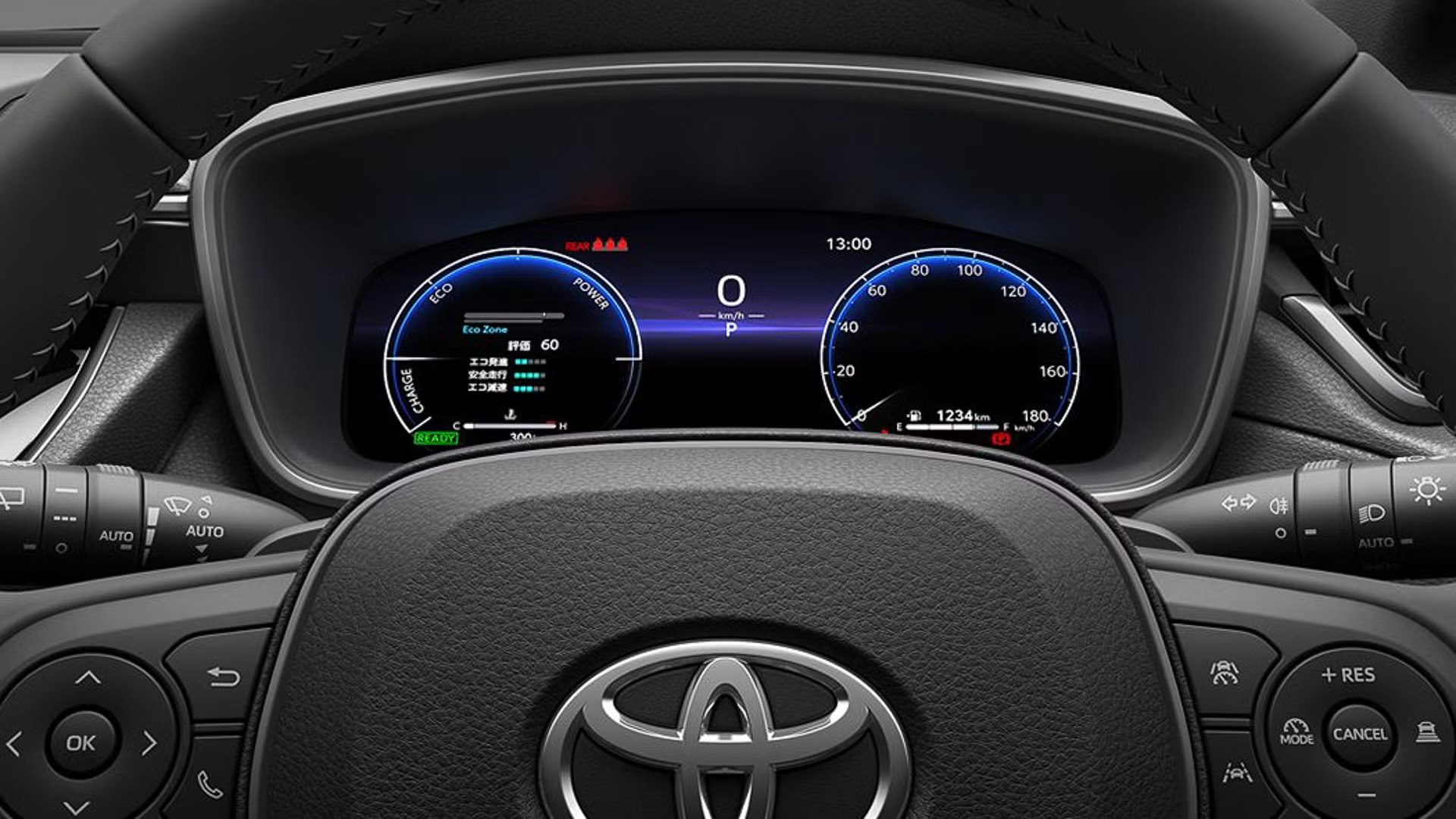Massive Ford Recall: Brake Assist Loss Impacts Over 300,000 Vehicles
Ford Motor Company has announced one of its most significant safety recalls in recent years, affecting more than 300,000 vehicles across North America due to a critical brake assist malfunction. This extensive recall underscores the automotive industry’s ongoing challenges with electronic safety systems and highlights the paramount importance of maintaining vehicle safety standards in an era of increasingly sophisticated automotive technology.
The recall represents a substantial undertaking for Ford, requiring coordination across multiple dealership networks and technical support systems to address what the company has identified as a potentially dangerous safety defect. The scope and nature of this recall demonstrate how modern vehicles’ reliance on electronic systems can create widespread safety concerns when components fail to operate as designed.
For vehicle owners, this recall serves as a crucial reminder of the importance of staying informed about manufacturer safety notices and responding promptly to recall notifications. The brake assist system plays a vital role in modern vehicle safety, and any compromise to its functionality can significantly impact driver and passenger safety in emergency braking situations.
Scope and Details of the Recall
Key Numbers and Geographic Areas
The massive scale of this recall encompasses over 300,000 vehicles distributed throughout North America and the United States, making it one of Ford’s most extensive safety recalls in recent memory. The geographic distribution spans across multiple states and provinces, affecting urban and rural communities alike where these popular Ford and Lincoln vehicles are commonly found on roads and highways.
The sheer magnitude of affected vehicles presents logistical challenges for both Ford and its dealer network, requiring careful coordination to ensure that all vehicle owners receive proper notification and have access to the necessary repairs or updates. This widespread distribution also highlights the popularity of the affected vehicle models among consumers who rely on these trucks and SUVs for both personal and commercial applications.
The recall’s geographic scope necessitates a comprehensive communication strategy to reach vehicle owners across diverse markets and communities. Ford has implemented multiple notification channels, including direct mail, digital communications, and dealer outreach programs to ensure maximum coverage and awareness among affected vehicle owners.
Specifically Affected Vehicle Models
The recall specifically targets several of Ford’s most popular and recently manufactured vehicles, including the 2025 model year Lincoln Navigator, F-150, Expedition, Bronco, and Ranger. These models represent some of Ford’s flagship offerings in the luxury SUV, pickup truck, and off-road vehicle segments, making the recall particularly significant for the company’s reputation and customer relationships.
The Lincoln Navigator, Ford’s premium full-size SUV, appeals to consumers seeking luxury features combined with substantial towing and cargo capacity. The inclusion of this high-end model in the recall affects customers who have invested significantly in Ford’s luxury vehicle technology and expect the highest levels of safety and reliability.
The F-150, America’s best-selling pickup truck for decades, represents a cornerstone of Ford’s commercial and consumer vehicle lineup. Its inclusion in the recall affects a diverse customer base ranging from construction professionals and contractors to families who rely on the truck’s versatility for daily transportation needs.
The Expedition, Bronco, and Ranger models round out the affected vehicles, representing Ford’s commitment to the SUV and off-road vehicle markets. These vehicles are popular among outdoor enthusiasts, families requiring substantial cargo space, and consumers seeking capable vehicles for recreational activities.
Root Cause of the Problem and Associated Risks
Electronic Brake Booster (EBB) Module Failure
The recall centers on a critical malfunction within the Electronic Brake Booster (EBB) module, a sophisticated component responsible for providing power assistance to the vehicle’s braking system. This module represents a significant advancement in automotive braking technology, designed to enhance braking performance while integrating seamlessly with modern vehicle safety systems and driver assistance features.
The EBB module’s failure can manifest in various ways, potentially occurring during normal driving conditions or when the vehicle’s Advanced Driver Assistance Systems (ADAS) are actively engaged. This timing variability makes the defect particularly concerning, as drivers may experience reduced braking assistance when they least expect it or when they’re relying on automated safety features to help prevent accidents.
The technical complexity of the EBB module means that its failure can have cascading effects throughout the vehicle’s braking system. Modern vehicles rely heavily on electronic integration between various safety systems, and when a critical component like the brake booster fails, it can compromise the effectiveness of related safety features designed to protect occupants and prevent collisions.
Understanding the EBB module’s role in the overall braking system helps explain why this recall is so significant. The module doesn’t just provide basic brake assistance; it interfaces with multiple vehicle systems including stability control, anti-lock braking systems, and various driver assistance technologies that have become standard features in modern vehicles.
Safety Impact and Accident Potential
The most serious consequence of the EBB module failure is a measurable increase in braking distance, which can prove catastrophic in emergency situations where every foot of stopping distance matters. When drivers suddenly lose brake assistance, their vehicles require significantly more pedal pressure to achieve the same braking force, potentially catching drivers off guard during critical moments.
This increased braking distance becomes particularly dangerous in scenarios where drivers have become accustomed to their vehicle’s normal braking performance. The sudden change in braking characteristics can lead to rear-end collisions, intersection accidents, or failures to stop before pedestrian crossings, creating serious safety hazards for both vehicle occupants and other road users.
The heightened accident risk extends beyond simple stopping distance calculations. When brake assist fails unexpectedly, drivers may panic or overcompensate, potentially leading to loss of vehicle control or erratic driving behavior that endangers other motorists. The psychological impact of sudden brake system changes can be just as dangerous as the mechanical implications.
Emergency braking situations, where split-second decisions and maximum braking performance are crucial, become significantly more dangerous when the EBB module fails. Professional drivers, delivery personnel, and others who drive frequently may be particularly vulnerable as they rely on consistent braking performance throughout their daily routines.
Ford’s Proposed Solution and Corrective Measures
Software Update as the Primary Remedy
Ford has determined that a comprehensive software update for the EBB module represents the most effective solution for addressing the brake assist malfunction. This technological approach reflects the increasingly software-driven nature of modern automotive systems, where many mechanical problems can be resolved through electronic calibration and programming adjustments.
The software update specifically targets the communication protocols and operational parameters within the EBB module, correcting the underlying programming issues that cause the brake assist failure. This solution demonstrates Ford’s engineering team’s thorough analysis of the problem’s root cause and their confidence in a software-based remedy rather than requiring hardware replacement.
By implementing a software solution, Ford can address the recall more efficiently and cost-effectively than traditional mechanical repairs would allow. This approach also minimizes the time required for each vehicle’s service, reducing inconvenience for customers while ensuring that the fix addresses the fundamental cause of the problem rather than merely treating symptoms.
The software update includes enhanced diagnostic capabilities that will help prevent similar issues from occurring in the future. These improvements provide additional monitoring and fail-safe mechanisms within the EBB module, creating multiple layers of protection against brake assist malfunction.
Implementation Methods and Owner Costs
Ford has implemented a dual-approach strategy for delivering the necessary software updates, offering both over-the-air (OTA) updates and traditional dealership service options. The OTA capability represents a significant advancement in automotive service delivery, allowing many vehicle owners to receive the fix without visiting a service center or experiencing any disruption to their vehicle usage.
For vehicles equipped with OTA update capability, owners will receive notifications through their vehicle’s infotainment system or associated mobile applications, guiding them through the update process. This convenience factor significantly reduces the logistical burden on both customers and Ford’s dealer network while ensuring rapid deployment of the fix across the affected vehicle population.
Vehicles that lack OTA capability or encounter issues with wireless updates can receive the same software correction through Ford’s extensive dealer network. Service technicians have received specialized training and diagnostic equipment necessary to properly implement the EBB module updates, ensuring consistent and reliable repair quality across all service locations.
Importantly, Ford has committed to providing all recall-related services at no cost to vehicle owners, demonstrating the company’s commitment to customer safety and satisfaction. This no-cost approach removes any financial barriers that might prevent owners from obtaining the necessary repairs, ensuring maximum compliance with the recall and optimal safety outcomes.
The recall also includes comprehensive follow-up procedures to verify that the software updates have been successfully implemented and that the EBB modules are functioning properly after the correction. This quality assurance approach provides additional confidence for both Ford and vehicle owners that the recall has effectively addressed the safety concern.
Vehicle owners are encouraged to respond promptly to recall notifications and contact their preferred Ford or Lincoln dealer to schedule service appointments if OTA updates are not available for their specific vehicles. The company has also established dedicated customer service resources to answer questions and provide guidance throughout the recall process, ensuring that all affected customers receive the support they need to address this critical safety issue.



